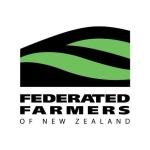Lake water quality trends upwards (if you study the report)
Federated Farmers has welcomed NIWA’s Lake water quality in New Zealand 2010: Status and trends report as vindication, albeit grudging, of the work farmers have put in over the past decade.
“Turning water quality around is no different from a supertanker. It takes time but we’re now seeing some positive indicators,” says Lachlan McKenzie, Federated Farmers Dairy chairperson.
“Over the past decade, we’ve invested massively in effluent management systems and other on-farm improvements. There’s been a hell of a lot of great work done on-farm and in the industry which goes completely unreported.
“Just take the IDF World Dairy Summit I’m at in Auckland. Our biggest industry and our global industry’s biggest conference, but where’s the coverage?
“This NIWA report raises important questions and we must answer those.
“If you read past the Executive Summary at what lakes are there and what lakes aren’t, there’s only a weak correlation between the TLI (Trophic Level Index) and LakeSPI (Lake Submerged Plant Indicator) and the level of pastoral farming in a catchment.
“Some of NIWA’s conclusions are simplistic when applied nationally. This is a study of 112 lakes when New Zealand has 775 lakes of half a kilometre or longer. It also includes only two urban lakes, one in Takapuna and the other in Hamilton.
“Interpreting these results must be lake specific with multiple factors at play. LakeSPI, for one, is influenced heavily by exotic aquatic plants and fish, which aren’t cows.
“But are farmers denying any impact of agriculture on lake water quality? Of course we’re not. That’s why we’ve made a massive investment over the past decade and why we’re open to public scrutiny.
“But we cannot be expected to make all the improvements when agriculture is far from all of the problem.
“I, for one, would dearly love to know what’s causing the decline in 40 percent of lakes with ‘dominant native catchment cover’.
“Could it be introduced water fowl, koi carp, aquatic plants and trout perhaps? NIWA has instead strayed into ‘gosh, it must be farming’, instead of staying science informed.
“The shame is that where there’s a claim, we’ll get the blame. We’ve got to get past that and it starts by seriously analysing this report instead of parroting it,” Mr McKenzie concluded.
